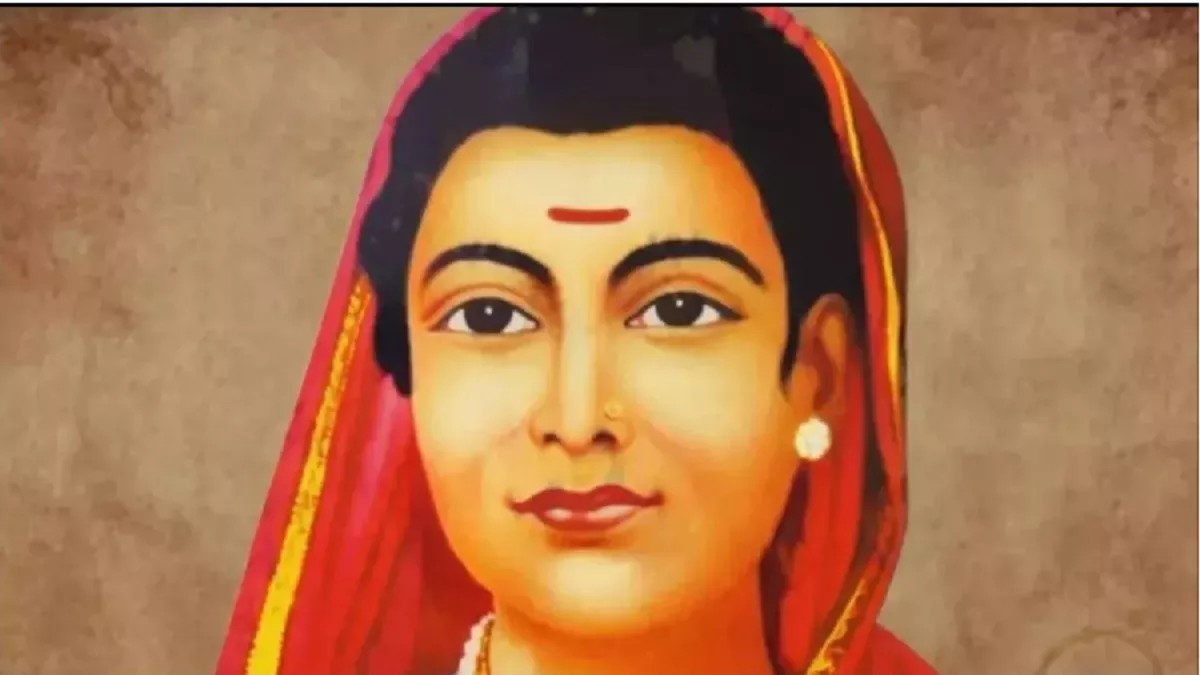
Savitribai Phule and Rani Velu Nachiyar

08.01.2024
Savitribai Phule and Rani Velu Nachiyar , Daily Current Affairs , RACE IAS : Best IAS Coaching in Lucknow
|
For Prelims:About Savitribai Phule,Important points, Special achievements of Savitribai Phule,Important statements of Savitribai Phule, About Rani Velu Nachiyar,Background |
Why in the news?
Recently, the Prime Minister paid tribute to Savitribai Phule and Rani Velu Nachiyar on their birth anniversary.
Important points:
- Prime Minister Shri Modi said that Savitribai Phule and Rani Velu Nachiyar have inspired the society with their compassion and courage.
- The Prime Minister has also shared some excerpts from Mann Ki Baat, where he has expressed his views about Savitribai Phule and Rani Velu Nachiyar.
About Savitribai Phule:
- Savitribai Phule was born in a Dalit family on January 3, 1831.
- When plague spread in Pune, Savitribai Phule started serving the patients. During this time he contracted plague and died on March 10, 1897.
- Savitribai Phule was born in Nayagaon, a small village in Satara district of Maharashtra.
- When Savitribai Phule was just 9 years old, she was married to 13 year old Jyotirao Phule.
- Savitribai is considered the pioneer of modern Marathi poetry.
- When Savitribai Phule got married, she was illiterate.
- Seeing Savitribai Phule's dedication in studies, Jyotirao Phule was impressed and decided to teach Savitribai further.
- She is also known as a social worker, poet, philosopher etc.
- His poems mostly focused on nature, education and abolition of the caste system.
- When the caste system was at its peak in the country, inter-caste marriages were promoted by them.
- Savitribai Phule is considered to be the first teacher of the country. She, along with her husband, opened the country's first women's school in the year 1848.
- To become a teacher, he was trained in Ahmednagar and Pune.
Special achievements of Savitribai Phule:
- Savitribai Phule, along with her husband Jyotirao Phule, opened the country's first school for girls in Pune in 1848.
- Savitribai Phule was the headmistress of this school.
- Later, this school was opened to girls of all castes.
- A total of 18 schools were opened in the country by Savitribai Phule and Jyotirao Phule, for this work their contribution was also honored by the British East India Company.
- An ashram for widows was also opened by Savitribai.
- Apart from widows, she also started giving shelter to destitute women, child widows and women abandoned by their families in her ashram.
- Savitribai Phule also taught every woman and girl living in the ashram.
- 'Satyashodhak Samaj' was founded by Savitribai Phule, which conducted marriages without priests and dowry.
Important statements of Savitribai Phule:
- Education opens the door to heaven which gives an opportunity to know oneself.
- Educate your daughter before her marriage, so that she can easily differentiate between good and bad.
- Study to live with self-respect, school is the true jewel of human beings.
- Women are not made only to work at home and fields, they can do better work than men.
- The more you know, the less you're likely to be afraid.
About Rani Velu Nachiyar:
- Rani Velu Nachiyar (3 January 1730 – 25 December 1796) was the queen of the Sivagangai estate.
- Queen Velu Nachiyar ruled Sivagangai for more than 10 years.
- Rani Velu Nachiyar was the first Indian queen to go to war with the East India Company in India (in 1870).
- Hyder Ali's forces, with the support of feudal lords, the Maruthu Brothers, Dalit commanders and Thandavarayanan Pillai.
- Hyder Ali helped the queen with 5,000 soldiers and gunpowder weapons.
- Queen Velu Nachiyar was also known by the Tamil people as Veeramangai (brave woman).
- Nachiyar was trained in many methods of warfare, including the use of war match weapons, martial arts such as Valari, Silambam, horse riding and archery.
- Rani was a scholar of many languages and was fluent in languages like French, English and Urdu.
- Queen Velu Nachiyar established the first army of trained women soldiers in the late 1700s, the year with the experiment of the first human bomb.
- A commemorative postage stamp was issued in the name of Rani Velu Nachiyar on 31 December 2008.
Background:
- Rani Velu Nachiyar was the princess of Ramanathapuram.
- She was the only child of King Chellamuthu Vijayaragunatha Sethupathi and Queen Sakandhimutthal of the Ramnad Empire.
- Queen Velu Nachiyar was married to King Muthu Vaduganatha Periyavudaya Thevar of Sivagangai, with whom she had a daughter.
- After King Muthu Vaduganatha Periyavudaya Thevar was martyred in a battle with EIC troops at Kalayarkoil in 1780, the queen herself joined the conflict.
- In 1790, his daughter Vellaasi succeeded him.
- The queen had given powers to her daughter along with the Marudu brothers to help her administer the kingdom.
- Velu Nachiyar died of illness on 25 December 1796, a few years after his daughter succeeded him.
Source:News on air